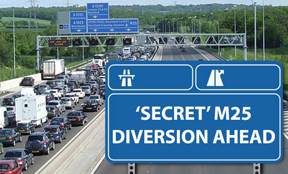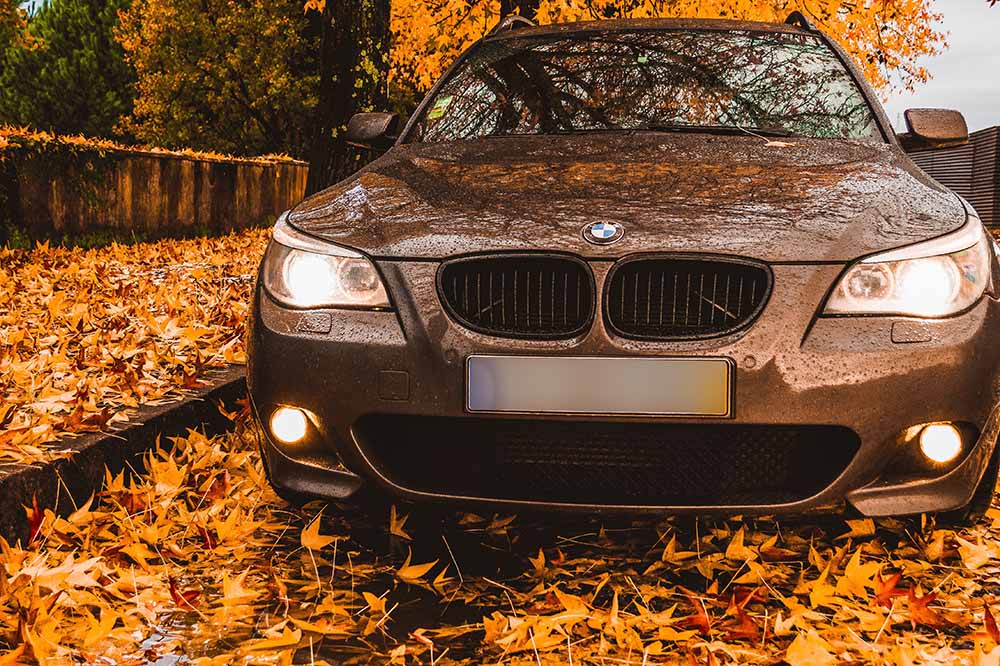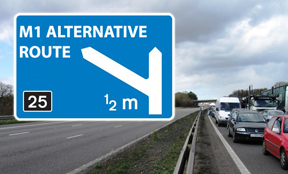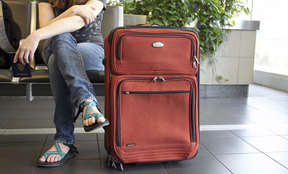
When a family member or close friend dies, the situation can be made more stressful by the seemingly endless list of administrative tasks that need to be completed – such as what happens to the person’s car?
Here, we look at what needs to be done and who needs to be informed if a car owner dies.
 Find out what you need to do with a car after the owner
passes away (Credit: Pexels)
Find out what you need to do with a car after the owner
passes away (Credit: Pexels)
Letting the DVLA know that someone has died
You may be able to use the Tell Us Once service, where you make a single declaration that is used to inform other official agencies that someone has died.
If the Tell Us Once service is not available in your area, you can inform the DVLA by sending a letter with the following information:
- Your relationship to the person who died
- The date the person died
- Their name, address and date of birth
Send the letter to the DVLA at the following address to inform the agency of the car owner’s death.
Sensitive Casework Team
DVLA
Swansea
SA99 1ZZ
You will not be required to send the original death certificate, so make sure you keep hold of this as it will be needed when settling other affairs.
What to do if you want to keep the vehicle after the owner has died
If the car owned by the person died has been left to you, and you would like to keep it, here’s what you will need to do next.
Tell the DVLA you are the new keeper of the vehicle and tax it
Contact the DVLA and let them know that you are the new keeper of the vehicle. How you do this will depend on whether or not you have the V5C - or log book, as it's known.
The following information covers both scenarios.
You have the V5C of the deceased person’s car
Firstly, you should complete section 2 of the new-style V5C, or section 6 if you have the older style log book without the multi-coloured blocks.
Next, you will need to detach the green ‘new keeper’ slip.
You will also need to write a letter that covers your relationship with the owner of the vehicle who died. Also include details of who should receive any money that is due as a refund for unused road tax.
Remember, you will need to buy new road tax (VED), as this cannot be transferred between owners.
Now you should send the V5C form and letter to the DVLA Sensitive Casework Team. Include a V890 form if you want to register the vehicle as off the road (SORN).
Send to:
Sensitive Casework Team
DVLA
Swansea
SA99 1ZZ
This will trigger the DVLA to cancel the current road tax and send a refund to the person named in your letter. A new V5C will also be issued to you.
You can now tax the vehicle using the new keeper slip that you removed from the original V5C.
You have not got the V5C of the deceased person’s car
If you don’t have the V5C (or log book as most know it), you will need to fill in a V62 to get a new one. There will be a £25 cost for this.
As above, you will need to write a letter to the DVLA’s Sensitive Casework team, explaining your relationship to the car owner who has died, the date they died and who should be paid any unused VED that needs to be refunded. Add a V890 form if you wish to declare the vehicle off the road (SORN).
Send the letter and the completed V62 to:
Sensitive Casework Team
DVLA
Swansea
SA99 1ZZ
Once the letter and form have been processed, unused tax will be refunded and a new V5C will be sent out to you.
What to do if you are selling the deceased person’s car
As with keeping a car that was left to you after the owner has died, what you need to do if selling the car depends on several factors. Firstly, if you have the V5C log book, and secondly, if you’re selling the vehicle to a private buyer or dealer.
If you have the V5C log book
To start with, you will need to write a letter to the DVLA’s Sensitive Casework team, telling them about your relationship to the car owner who has died, the date they died and who should receive any VED that needs to be refunded.
You will then need to send the letter to the DVLA Sensitive Casework Team, with the correct part of the V5C log book – depending on whether it is a dealer or private buyer.
See below to ascertain what part you must include, then send the letter and V5C section to:
DVLA
Sensitive Casework Team
Swansea
SA99 1ZZ
If selling the deceased person’s car to a private buyer
If selling to a private individual, complete section 2 of the new-style log book (the one with multi-coloured sections). Or fill in section 6 if it is the older-version log book.
Detach the green ‘New Keeper’ section to the person who is buying the car.
If selling the deceased person’s car to a car dealer
Ask the dealer to complete the ‘sell, transfer or part-exchange your vehicle to the motor trade’ section of the log book – this will be yellow.
Send the section that is perforated to the DVLA Sensitive Casework Team and give the remaining part of the V5C log book to the dealer.
If you don’t have the V5C log book
When selling the car, you will need to complete a V62 for to apply for a new V5C log book. This will come with a £25 fee.
You will then need to write a letter to the DVLA Sensitive Casework team - see the address above – with the following information:
- The date that you sold the vehicle
- Your relationship to the person who has died
- The date they died
- Who should be paid any refunded VED
- The new buyer’s name and address
What happens if the deceased person's car has outstanding finance?
If you want to keep the car, you should contact the firm that holds the outstanding debt and ask to take over payments for the car. However, if you do not want to keep the car, you can't simply sell it, as it likely still belongs to the finance company. They will often take the car and sell it at an auction to cover the loan. Speak to a legal representative if you think the firm is taking the car when it should not.
What if the car needs to be scrapped?
If the car that belonged to the person who died is not really worth keeping on the road - perhaps it's old or the MOT is up, the best thing to do could be to scrap it. You can have it scrapped and take the salvage fee (typically £200-£300) yourself or give the car to a charity that will scrap it and use the money for good causes.
Make sure whoever takes the car is an authorised treatment facility (ATF). Give the ATF the vehicle log book (V5C), but keep the V5C/3 (this is the yellow part of the log book) to prove you have disposed of the vehicle legally.
Is a car still taxed after the owner dies?
As soon as the owner dies, you need to tell the DVLA, so this means shifting ownership will need the new owner to pay tax.
However, the DVLA is likely to allow a short period of time to swap the tax over, but you should let the agency know as soon as possible and discuss it with them.
Is a car still insured if the owner dies?
Anyone using the vehicle on the road will need valid insurance and road tax.
Latest motoring news and guides
Take a look at more of our top motoring-related content here...
-
CAR TAX SHOCK: How much is my car tax going to go up by?
-
CAN I STILL DRIVE?: My driving licence has expired - can I keep driving while I wait for a new one?
-
INSURE AND SAVE: How can I cut car insurance quote? Seven tips that work
-
DRIVERS IN 20MPH PERIL: How fast in a 20mph zone will get a speeding ticket in London
-
TOP EVS FOR BRITS: What is the most popular electric car (EV) for UK buyers 2022?
-
TESTING TIMES: What day of the week are driving tests released?
-
SECRET EXITS: What are secret exits on motorways like the M25 and can I use them
-
M25 JAM BUSTER: M25 alternative routes revealed
-
SECRET PARKING FINES: Secret parking offences you're committing but don't realise
-
PAVEMENT PERILS: Can you park on pavements in the UK and what are the fines if not?
-
SUNGLASSES SHOCK: Are my sunglasses legal for driving - how to check instantly?
-
NUMBER PLATES EXPLAINED: How old is a car by its number plate? Full list
-
SPEEDING TICKET CHECK: Will I always get a speeding ticket after being flashed
-
AVOID POINTS: Will I get a speed awareness course instead of points?
-
DRIVING ABROAD DOCUMENTS: Do I need an international driving permit for France, Spain, Greece and more
-
WHITE LINES EXPLAINED: What are the rules around double white lines and the risk of £1,000 fine?
-
BRUM: DEAL Do I pay the Birmingham Clean Air Zone at weekends?
-
GOT YOUR NUMBER: What does my driving licence number reveal about me?
-
FAKE COP SHOCK: How to spot a fake undercover police car
-
ELECTRIC LICENCE TO DRIVE: Do I need an electric car licence and driving test in the UK?
-
VAPE RULES: Can I vape in a car with kids in it?
-
LICENCE TIMES: When can I apply for a provisional licence?
-
E-SCOOTER LAWS: Are electric scooters Legal in the UK now? When is the law changing?
-
SLIDERS MUST-KNOW: Can I drive in sliders in the UK?
-
DOT CHECK: What are the black dots on my windscreen for?
-
CAR TRACKER: How can I find out who owns a car
-
CHARGE AND DRIVE: Electric car charging points at UK airports for public use - 2022
-
TYRE-CHECK TOOL: How old are my tyres - find out instantly here
-
CAR FUTURE: What happens to a car when the owner dies?
-
SPARE WHEEL RULES: How far and how fast can I drive on a space saver spare wheel
-
TICKET RISK: Can I be fined if the car park ticket machine is not working?
-
M6 JAM BUSTER: Is the M6 Toll Road free in the evening and at weekends?
-
PAY OR NOT PAY: How much is the Tamar Bridge toll and when do I need to pay it?
Author: Pete Barden:
Twitter: @pete_barden
Pete Barden is a qualified journalist who has written and produced for publications including The Sun (thesun.co.uk), New Statesman Media Group, Whatcar? (Whatcar.com) Stuff Magazine (Stuff.tv), Fastcar Magazine (Fastcar.co.uk), Maxim Magazine and UK broadcast stations within the Heart network (Formerly GCAP). Pete specialises in motoring and travel content, along with news and production roles. You can find out more about Pete Barden on LinkedIn.











